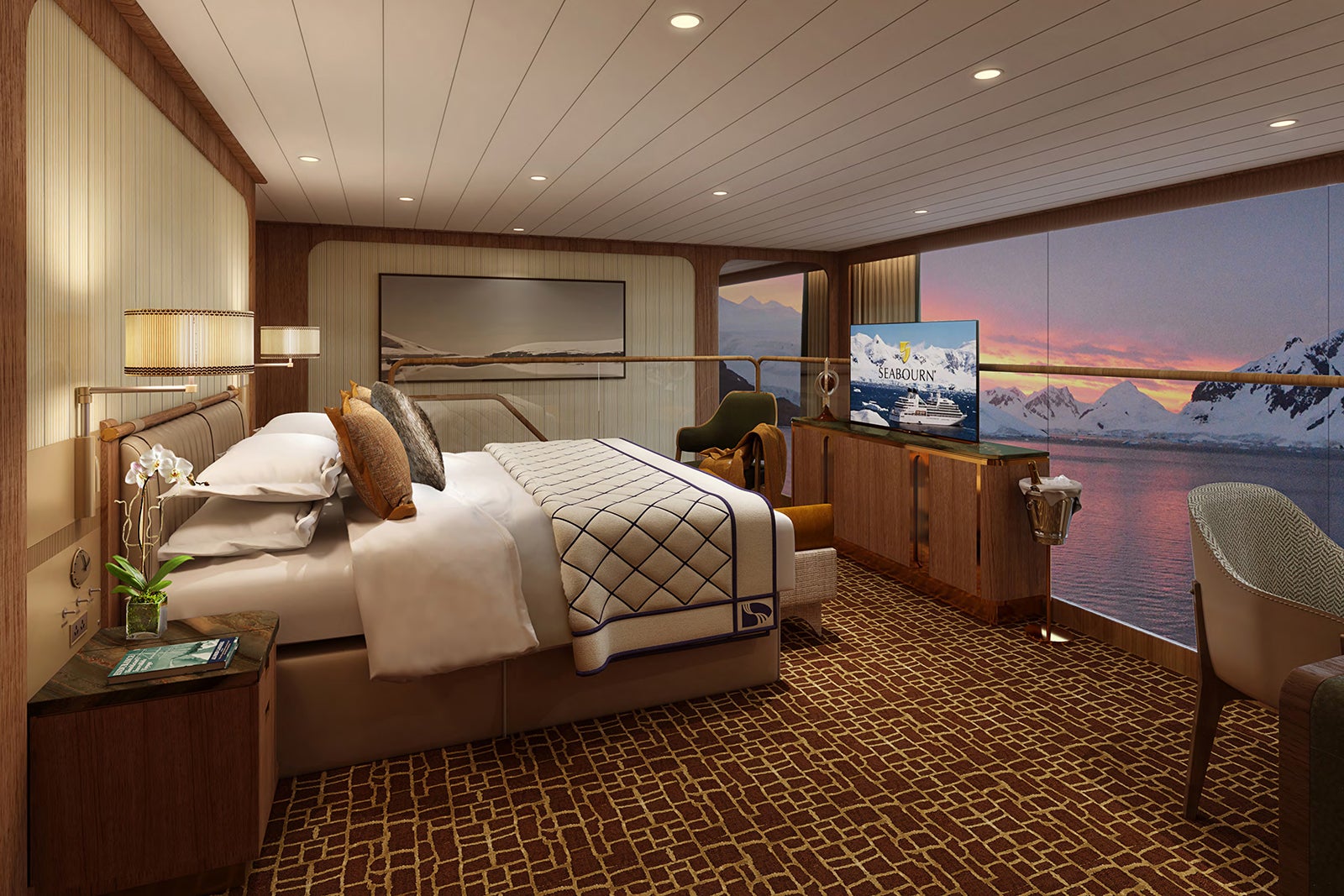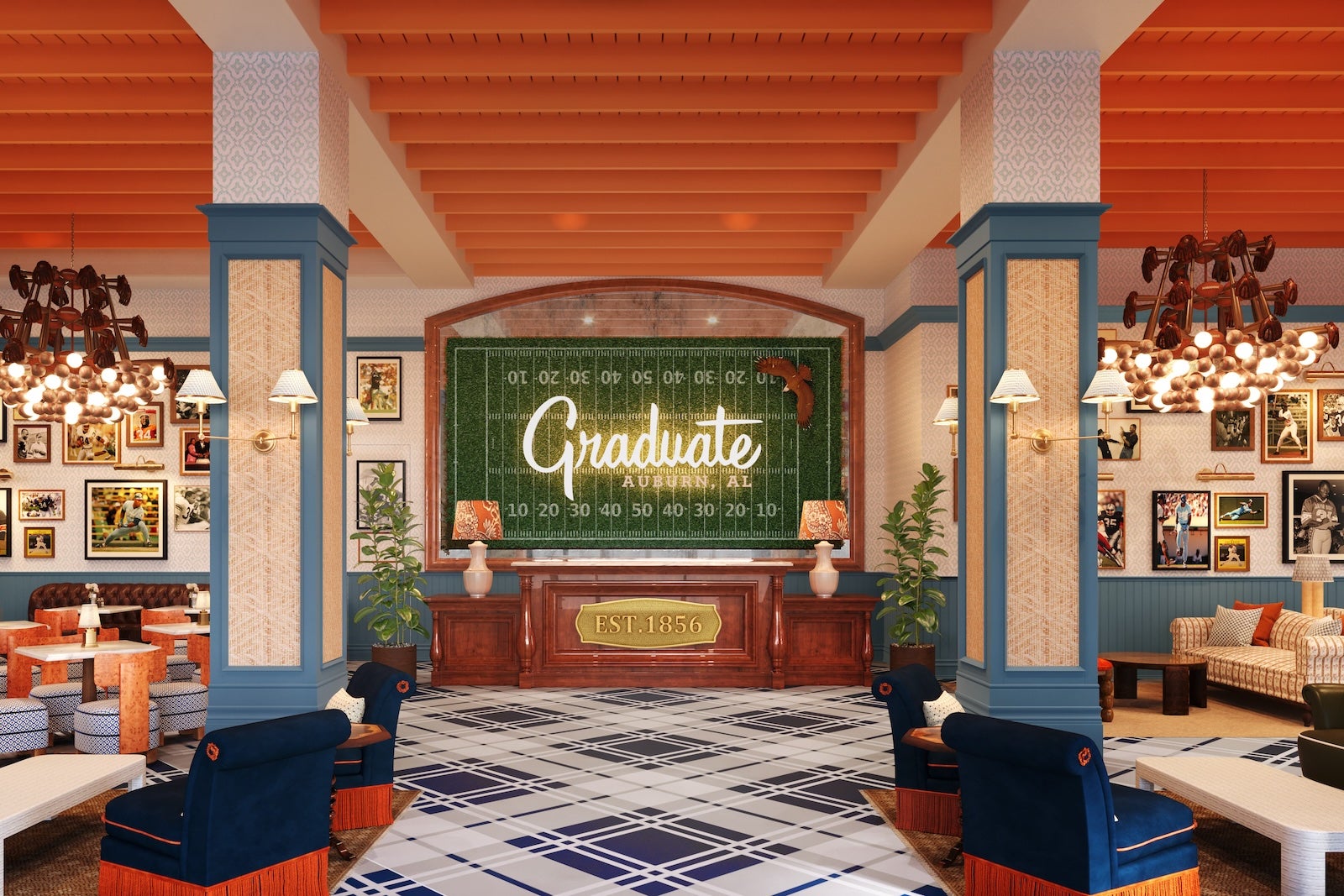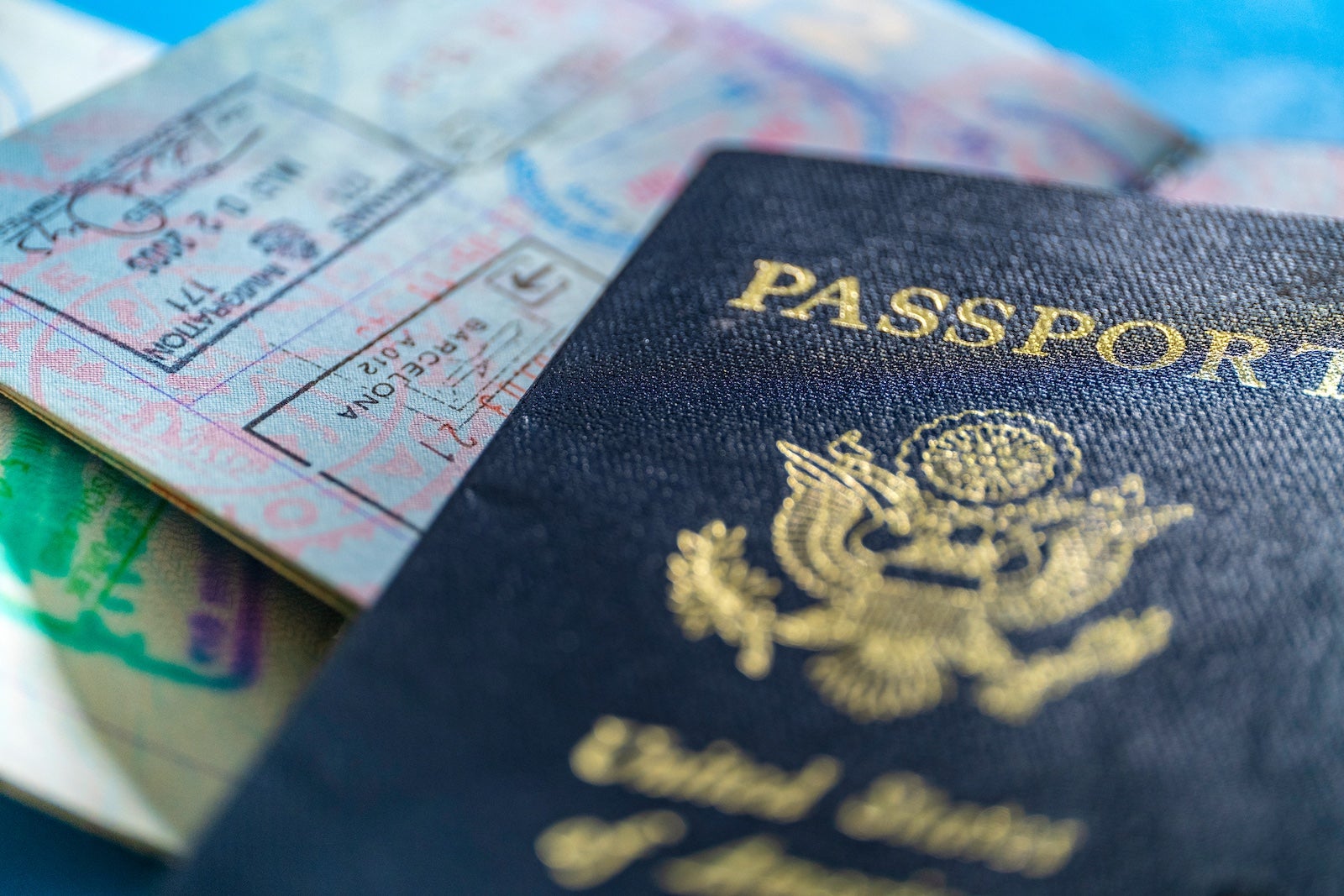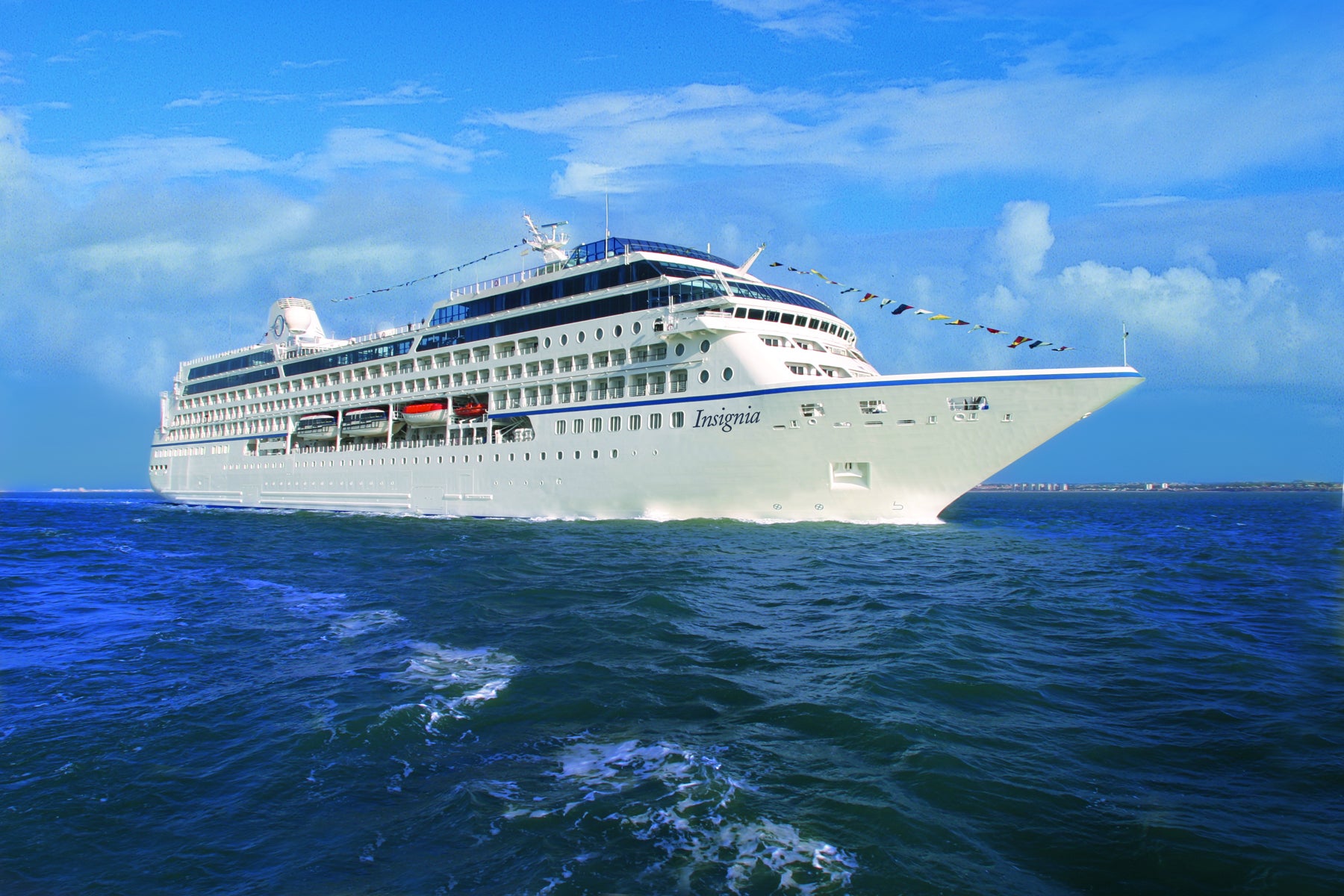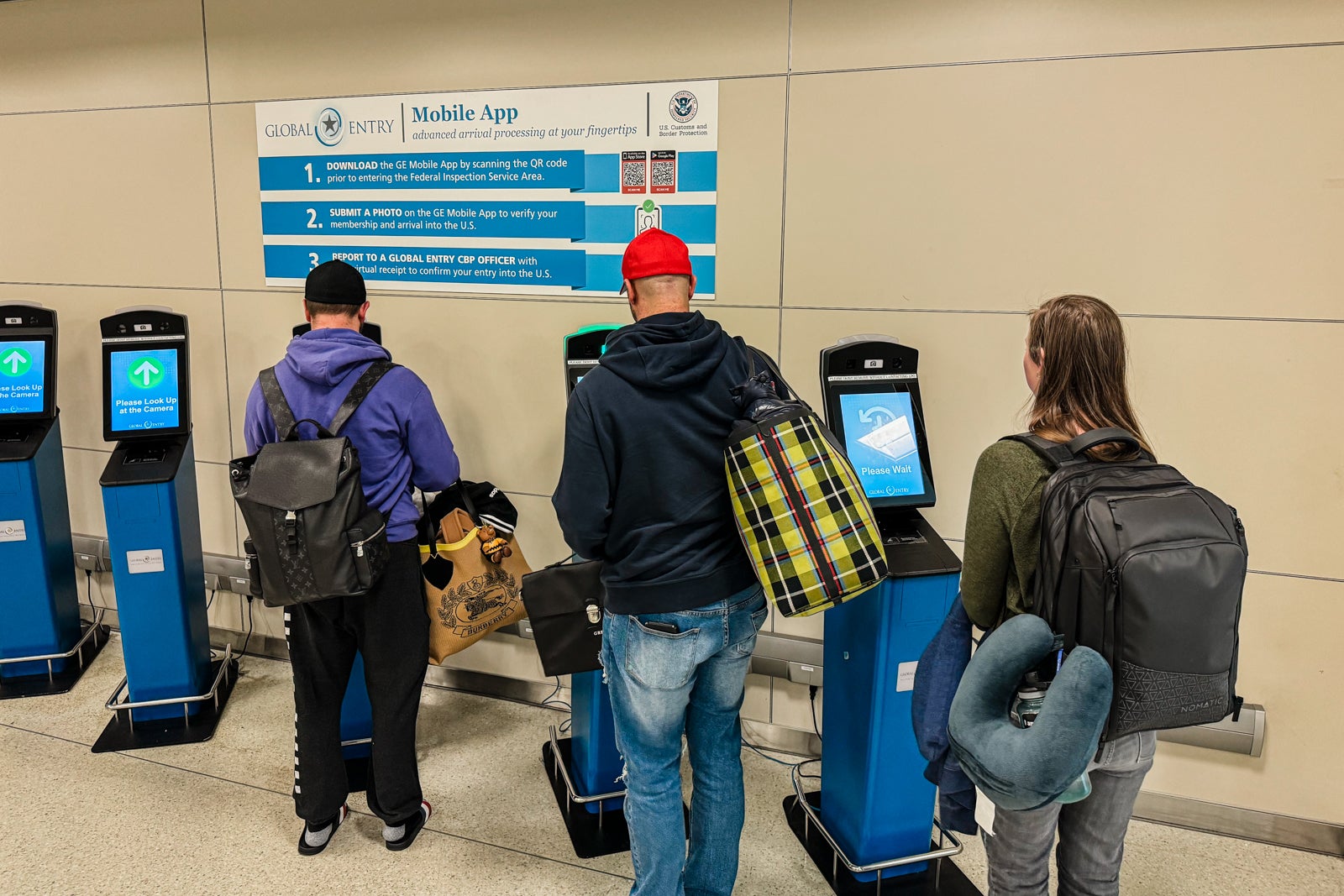Choosing a cruise ship cabin: The ultimate guide
Choosing a cruise ship cabin is a lot trickier than booking a hotel room.
Not only do you have to think about how big a room you need and what your budget is, you have to decide if you want to pay extra for a window or private balcony, where on the ship you want your cabin to be, and which associated perks and privileges will enhance your vacation. If your travel party is especially large, you need to figure out exactly how to combine bed or room types to accommodate everyone.
That is, if you’re booking early enough, and the cruise room types you want haven’t sold out.
Plus, the average cruise ship cabin is much less spacious than the average hotel room. If you’re used to booking the cheapest room for a land-based stay, you might not want to take the same approach for your vacation at sea.
Choosing the right cabin is the first step in maximizing your cruise vacation and getting the most from your vacation budget. Here, I answer the most common questions about cruise ship cabins and picking the best fit for your travel party.
What are the different types of cabins I can book on a cruise?
When you book a hotel or resort, your choices might include one king bed or two queen beds; garden view or beach view; a standard room, suite or perhaps a villa or casita. On cruise ships, the basic cabin categories are inside, outside (often called ocean view), balcony and suite — but there are subcategories, as well.
Typically, inside cabins are smaller and cheaper; suites are larger and more expensive. Here’s a closer look at the different cabin types you can choose when you book your cruise.
Inside
An inside, or interior, room on a cruise ship is notable for its lack of a window and therefore natural light. These cabins are located in the middle of each deck, rather than along the outer sides of the ship. They are generally small, often around 150 square feet, and while they come with an ensuite bathroom, closet and small desk or vanity area, they tend not to have a comfortable sitting area for hanging out.
Most inside cabins sleep two with a queen bed that can separate into twins, but you’d be surprised that many can sleep four with upper bunks that pull down from the ceiling.

Daily Newsletter
Reward your inbox with the TPG Daily newsletter
Join over 700,000 readers for breaking news, in-depth guides and exclusive deals from TPG’s experts
Royal Caribbean and Disney Cruise Line have an interesting class of inside cabins with virtual windows. They are video screens, designed to look like a round porthole or floor-to-ceiling balcony door, that broadcast footage from outside the ship, so you can pretend you have a window.
Outside
Outside, or ocean view, cabins feature round porthole windows or one large picture window that cannot be opened. The rooms are often slightly larger than inside cabins; on some ships, they might have a sitting area in addition to the bed and bathroom.
Outside cabins offer natural light but not ocean breezes. The most affordable outside cabins have an obstructed view, meaning the windows look out on the lifeboats or other ship structures that block your view of the ocean beyond.
Balcony
Cruise ship balcony cabins are the most popular cabin category. So many travelers choose this type of cruise ship cabin that some ships put private verandas on all their outside cabins. That’s a recent trend; the oldest ships in a cruise line’s fleet might have more ocean-view rooms than balcony cabins, while the newest ships will have mainly balcony rooms.
Inside, a balcony cabin will offer an ensuite bathroom, bed(s), closet area, desk with chair and a small sitting area. The exterior wall will be a floor-to-ceiling window with a door leading to a private balcony, usually with two upright chairs and a small table for drinks or alfresco meals.
The private outdoor spaces are usually fairly small, but certain cabin categories might have roomier balconies due to the ship’s layout. Look for larger-than-average verandas on cabins at the back of the ship and in places where the structure of the ship juts out.
Royal Caribbean has an unusual type of balcony cabin on its Oasis Class ships. Instead of facing out to sea, these balconies look out on an interior yet open-air section of the ship, as if you had a balcony that overlooked a city street.
Some cruise ships, notably Celebrity Cruises’ Edge Class and Royal Caribbean’s Icon class, feature a new type of versatile balcony room. Instead of a typical veranda attached to each vessel’s exterior, these ships feature a large window that can slide down at the push of a button (like your car’s window) to bring the fresh air in. Close some folding doors and — voila! — instant balcony.
The benefit of this type of room (sometimes called an “infinite veranda”) is that all of the cabin’s square footage is usable rain or shine. With a traditional balcony, the extra outdoor space is wasted when it’s chilly or wet outside.
Suite
Suites are the largest type of cruise ship cabin, and they come in a wide range of varieties. Minisuites or junior suites are slightly roomier versions of balcony cabins, with sleeping and sitting areas in the same space without a wall in between. Larger suites might include sleeping areas in separate rooms, dining tables, large living room spaces, multiple bathrooms and expansive private balconies.
Suites also come with extra amenities, perks and privileges.
Are all cruise ship suites the same?
No! Suites on cruise ships come in a variety of sizes and layouts.
The most elaborate suites could be duplexes spread across two decks, featuring master bathrooms with whirlpool tubs and marble detailing, and balconies with alfresco dining areas, cushy patio furniture and a hot tub or wet bar.
Family suites might include additional bedrooms with bunk beds for kids; Royal Caribbean’s Ultimate Family Suite is a wonderland of slides, climbing walls, video games and comfy kid seating. It’s also a duplex with bedrooms upstairs and living areas downstairs. Cunard has duplex suites, as well.
The most spectacular suite at sea is likely Regent Seven Seas Cruises’ Regent Suite. The 4,443-square-foot multiroom luxury enclave features a gold-and-marble master bathroom that doubles as a spa, a $200,000 handmade mattress stuffed with horse hair, multiple balconies (one with a whirlpool tub) and an enormous living room, complete with piano and an actual Rembrandt painting.
Suites are not only about spacious digs, but also about the VIP perks and privileges that come with the booking.
Perks for passengers in the most expensive cabins can include priority boarding and disembarkation, freebies (Wi-Fi, laundry, drink packages, etc.), first pick of restaurant and shore excursion reservations, special queues to jump the line at the front desk or main dining room, and even reserved theater seating. You might also get nicer amenities such as name-brand toiletries, higher-thread-count sheets and linens, stocked minibars or fancy robes to enjoy on board.
In addition, suite guests might have access to the services of a butler or concierge, who can make tour, dining and show reservations, unpack your bags, bring you snacks and special room-service meals (perhaps from a specialty restaurant), and sort out any problems you might encounter. They might also bring you invitations to special events, such as cocktail parties and dinner at the captain’s table.
Some cruise lines, such as Norwegian Cruise Line and MSC Cruises, create special restaurants, lounges and sun decks exclusive to suite residents. This lets passengers avoid crowded public areas and enjoy fine dining in a less frenetic setting than the main dining room.
What specialty cabins should I know about?
Within each basic cabin category, you will find specialty cabins aimed at certain types of cruisers. These tend to be a little more expensive than the basic cabin in the same class but come with perks that can enhance your vacation.
Accessible cabins
All of the large oceangoing cruise ships can accommodate travelers in wheelchairs or who have mobility impairments. In fact, cruising can be one of the best vacation options for travelers with a disability.
Accessible cabins come in all types, from insides to suites, and typically have more square footage than the basic room in the same category to allow for wheelchair turning radius and storage. They will often have features such as roll-in showers with benches, wider doorways, smooth thresholds and lowered sinks and counters.
Not all accessible cabins are the same, so do your research before booking. In general, newer ships offer better accessibility; older ships might have retrofitted a cabin to make it more accessible but might not be able to offer all the enhancements of a purposely designed room.
Related: The best cruise lines for wheelchair users and passengers with limited mobility
Spa cabins
Do you book a vacation to spend maximum time at the cruise ship’s spa? Then a spa cabin might be a good choice for you. From Celebrity Cruises‘ AquaClass to MSC Cruises’ Aurea cabins, spa cabins can come in multiple layouts (from inside to suite) and usually feature a Zen-inspired decor.
Perks vary widely by line but might include in-cabin amenities — such as spa showerheads, healthy room service menus, workout gear and room diffusers — and spa-related perks, such as a spa concierge, free access to the thermal suite, priority for spa treatment reservations and discounts. Celebrity AquaClass guests even get their own restaurant.
Family cabins
Many cruise lines offer some type of cruise ship cabins for families, usually rooms that can sleep five (or more), have a separate bedroom for kids, or come with an extra bathroom or a split bathroom set-up (shower and sink in one room, toilet and sink in another). Some family suites are configurations of connected cabins that can accommodate larger, multigenerational family groups.
Carnival Cruise Line‘s Family Harbor cabins even come with access to an exclusive family lounge with snacks, games, TVs and computers, and a concierge. Plus, families get perks, such as free late-night group babysitting.
Concierge cabins
Typically, concierge (and concierge lounge) access is a perk for suite guests and top-tier frequent cruisers. However, a few lines offer concierge services to passengers who book specialty cabins that aren’t suites.
Celebrity Cruises’ concierge cabins are essentially standard balcony cabins with access to a concierge and a few other perks. Oceania Cruises also offers a concierge category of balcony cabin that comes with the services of a concierge and access to a concierge lounge, plus additional perks such as room service from the Grand Dining Room menu, access to the spa terrace sun deck and free laundry service.
I’m traveling solo. Are there cabins for just one person?
Single travelers often get short-changed when booking a cruise cabin. If they choose a regular cabin, priced for two people, they have to pay a single supplement — a solo cruiser tax, if you will, that can be akin to paying double the per-person fare. Some cruise lines have solved this problem by offering solo cabins designed and priced for one traveler.
Depending on the line, solo cabins come in inside, ocean-view and balcony options, though they’re often smaller than the same style of cabin designed to sleep two or more. You’ll find either a twin or full-size bed intended for one person.
Norwegian’s Studio cabins have access to an exclusive lounge where single travelers can meet and mingle and grab snacks. On Oceania’s Vista and upcoming Allura, solo cabin occupants have concierge-level perks and privileges, including concierge lounge access.
Related: The 6 best cruise lines for solo travelers
My large family can’t fit in one room. Which cruise ship cabin should we book?
As I mentioned earlier, larger families can look into family cabins and suites that accommodate five or six people. Some of the best cruise lines for families will have suites that can sleep eight, such as Norwegian’s three-bedroom garden villas. Disney’s deluxe family balcony cabins can sleep five in an oversized room with a queen bed, convertible sofa with a pulldown bunk above and a single Murphy bed that folds down from the wall.
But what if you’re traveling in a large family group with cousins, grandparents, friends, even a nanny in tow? You might need to book connecting rooms.
Many cruise ship cabins have doors that can be opened between rooms to turn side-by-side cabins into shared spaces. Some lines, such as MSC Cruises and Royal Caribbean, go so far as to arrange different kinds of cabins together that can be sold as individual rooms or opened up into a warren of rooms that can sleep 10 or so travelers.
Does it matter where my cabin is on the ship?
For some cruisers, any room will do. For others, scoring the best cabin location is vitally important because your enjoyment of the cruise is at stake.
Do you get horribly seasick (or are worried that you do)? You’ll want to choose a midship cabin on a lower deck to experience less ship movement and rocking. A balcony cabin that gives quick access to fresh air and a view of the horizon is also key.
Travelers who don’t sleep well with ambient noise should prioritize cruise ship cabins that are not above or below public areas, such as the pool deck, main dining room or nightclub. Connecting cabins are less soundproof than rooms without those extra doors, so avoid those, too, if you’re not booking both rooms.
If you have trouble walking long distances, you should book a cabin close to an elevator bank, so you don’t have to trudge down long hallways to your room. (Though rooms near stairwells are some of the worst cabin locations for folks who don’t want noisy rooms.)
Finally, you might prefer a cruise cabin that’s close to the parts of the ship you use most. Fitness enthusiasts might choose a room near the spa; poker players might like to be not far from the casino. Families might like to stick close to the pool or kids club.
What are the cheapest cruise ship cabins?
If you’re on a budget, windowless inside cabins are nearly always the cheapest option. But how do you find the most affordable rooms within other cabin categories?
Some cruise lines offer cruise cabin guarantee fares, which are typically the cheapest rate you can get for a cabin in any category. The catch is that you cannot pick your cabin. You’re guaranteed (hence the name) a room on the ship in the category you paid for — or higher.
These fares can be a great option for travelers who don’t care much about cabin location or who don’t spend much time in their rooms. At worst, you get a cheap cruise in a room that’s a little smaller, somewhat noisier or a longer walk than other cabins, and you might not be eligible for certain extra-value booking perks. At best, you can get upgraded to a room in a higher cabin category than you paid for.
Can I upgrade my cruise cabin like I can upgrade a flight or hotel room?
The holy grail of the frequent traveler is the complimentary, or at least cheap, upgrade to a nicer airline seat or hotel room than they paid for. You might wonder if there are tricks to accomplish the same on a cruise.
Cruise cabin upgrades are rarely guaranteed, but you have a few ways to chase one. Beyond the aforementioned guarantee booking, you can look for booking promotions or loyalty program perks that allow you to pay for one category of cabin and get upgraded to the next. A few cruise line credit cards let you use your points to pay for a cabin upgrade.
Sometimes a cruise line will reach out to booked passengers and offer them a low-cost upgrade or the option to bid on a cabin upgrade. While not free, these offers could get you a nicer room at a discount.
And it never hurts to ask! If you see prices drop on your cruise, you might be able to adjust your room selection to an upgraded one if the cost for the new cabin is the same as the original one. You can always ask at the front desk when you board your ship, but even if you play the birthday/anniversary/special occasion card, you can rarely sweet talk your way to a suite.
Related: 5 reasons to turn down a cruise ship cabin upgrade
Can I really survive a week in a tiny cabin?
A standard cruise ship cabin is much smaller than a typical hotel room, and, yes, if you squeeze four adults into a tiny inside cabin, you might regret that decision by week’s end. But you’d be surprised how livable cruise cabins are. Cruise ship designers are talented at maximizing space, creating cozy hangouts and surprise storage to make your cabin feel larger than it is.
That said, you can employ a variety of smart cruise ship cabin hacks to improve on the basic cabin design. Whether that’s bringing necessary extras like night-lights or an inflatable bathtub for your toddler or creating extra storage by using your suitcase under your bed as an extra drawer, a little creativity goes a long way toward helping you survive life in a tiny cabin.
But also … what are you doing in your cabin?! Get out there and explore the ship and the ports of call. That’s what you booked this trip for.
Bottom line
The best cruise ship cabin is the one that meets your top requirements for size, price and location. No matter which cabin you choose, you can find a way to make it work for you — whether by upgrading it, improving it or simply leaving it when you’re not sleeping or changing clothes.
If you’ve read this guide and are still confused about choosing a cabin on a cruise, I suggest you connect with a knowledgeable cruise travel agent. They can walk you through the entire booking process — and maybe get you a great price on the cabin you ultimately select.
Planning a cruise? Start with these stories:

